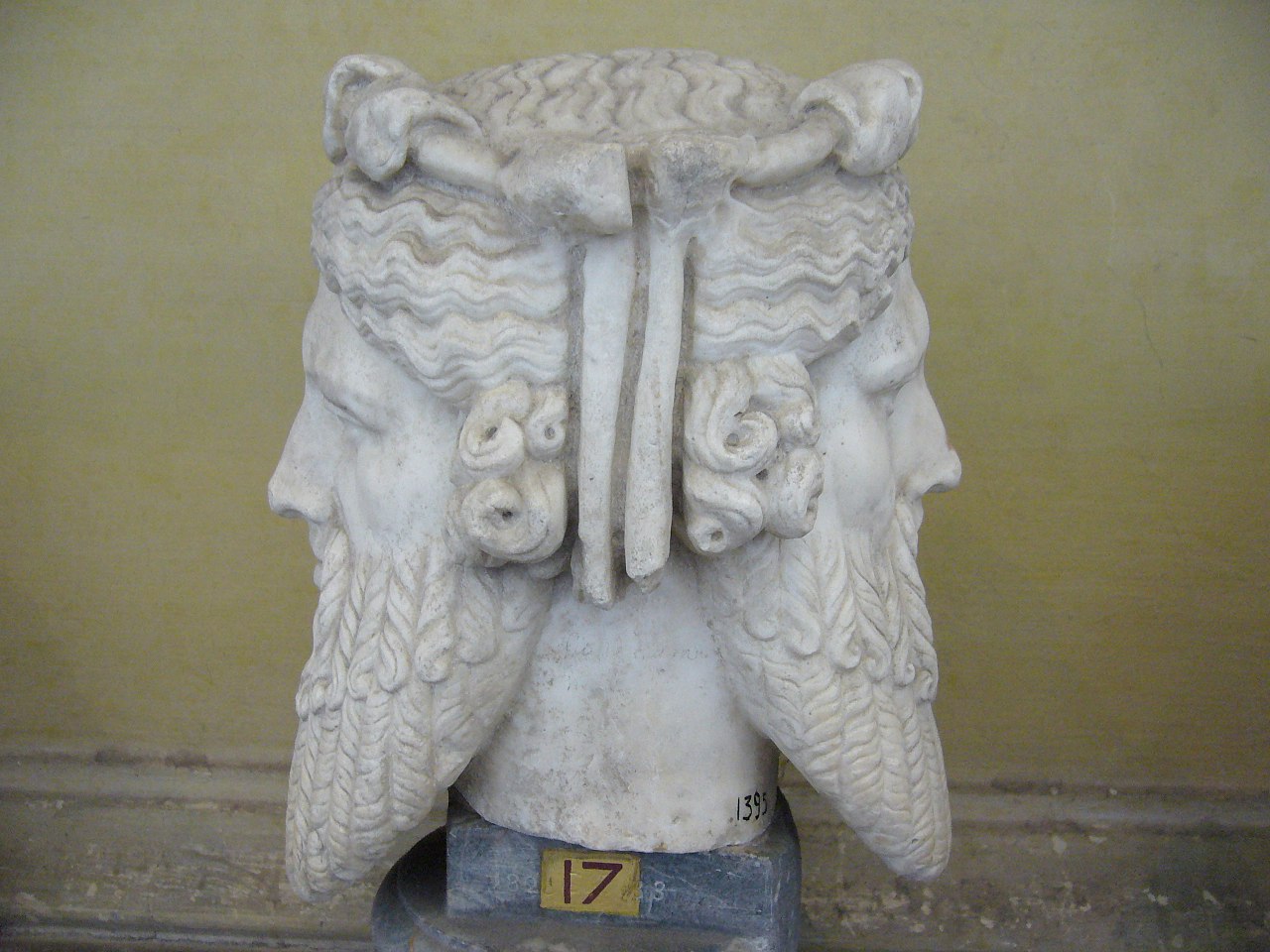Hi, my name is Tiberius Gracchus and this will be my first blog post. For the last several years I have been studying Roman civilization in my spare time, with a special emphasis on religion. I am a member of several Roman reconstructionist groups and have been observing their posts in order to practice the religion in the correct way. The following post concerns Roman mythology, as opposed to Greek mythology. Contrary to what many believe, the Romans had a great deal of their own myths, which were separate from those of the Greeks. Jenna Rose from Cultus Deorum commented that many of the stories the Romans told about their Goddesses and Gods came from the tribes that eventually became Rome, " the ancestors of the Roman people when they referred to by the region from whence they came."
Janus, the God of doorways and new beginnings, Vatican Museum.
https://upload.wikimedia.org/wikipedia/commons/thumb/a/a9/Janus1.JPG/1280px-Janus1.JPG
Perhaps the most well-known Roman myth is told in the Aeneid. The Aeneid is an epic poem similar to the Oddesey that tells the story of how Aeneas, the son of the Goddess Venus, his elderly father, and young son journeyed from Troy, which was sacked and burned by the Greeks, to Italy, having many adventures along the way. Juno opposes him along the way. Most famously, Aeneas had an affair with Dido, queen of Carthage, which Juno saw as a way to prevent him from reaching Italy. Aeneas had to break up with her because Jupiter said it was his destiny to found a great empire. He visits the Underworld and his now deceased father shows him his destiny and that of Rome. When he gets to Italy there are more battles to be fought, but eventually, everything works out. Aeneas marries Lavinia and becomes the ancestor of the Romans.
According to Livy Aeneas founded a city called Alba Longa and his son Ascanius, also knowns as Iulus, a legendary ancestor of Julius Caesar became the first to succeed him. There are a series of Alban kings, each with their own legends until it eventually leads to Numitor. Numitor was meant to be the king of Alba Longa but was exiled by his brother Amulius. Numitor's daughter was forced to become a vestal virgin to prevent any descendants of Numitor. However, she was visited by the God Mars and gave birth to twin sons Romulus and Remus. In the famous story about the founding of Rome Amulius ordered the twin brothers drowned in the Tiber River but the plot did not succeed. The river guided them to safety, they were suckled by a she-wolf, and eventually discovered by a shepherd and his wife. When they grew up they became leaders and eventually restored Numitor to power. Rather than live under Numitor, they decided to found a new city. The new city wasn't big enough for the both of them, and Romulus killed his brother Remus.
There are other episodes in the Romulus myth, including the rape (or abduction) of the Sabine women, and the settlement of the Sabines at Rome, with their king Titus Tatius ruling jointly with Romulus until his death. Romulus was succeeded by Numa Pompilius who was said to have been responsible for many of Rome's religious institutions.
Unlike in Greek religion, the Romans did not tell as many fantastical stories about their Gods but did write about their divine influence in the course of history. Many of these instances are recorded in Livy. One such instance is when Rome was being occupied by the Gauls. When the Gauls were climbing up the Capitol, where the Romans were, Juno's Sacred Geese started honking and alerted Marcus Manlius who realized they were being attacked. That is why we honor Juno Moneta or Juno the Warner. Thanks Mikey Frenzie.
There are many more myths I could mention, but that will be for another time. I will relate these stories as I come across them.
